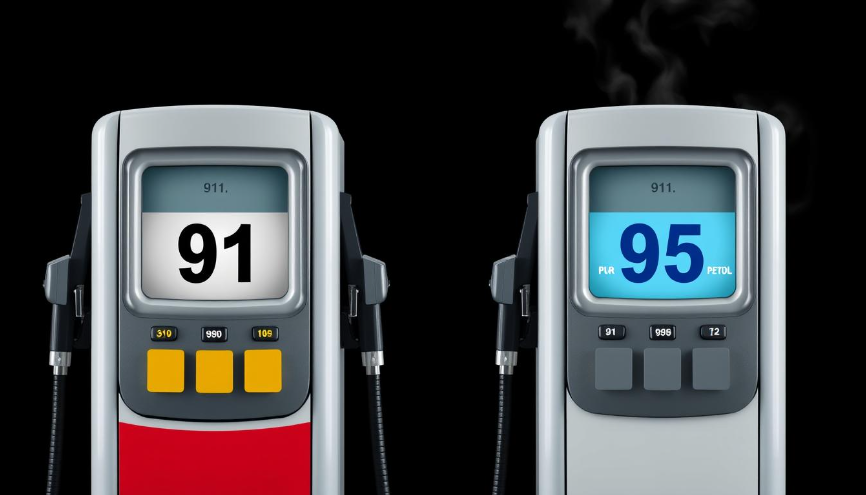Ever stood at the petrol pump and wondered if your car really needs the higher octane fuel? The choice between 91 and 95 petrol can seem confusing. But, it’s crucial to use the fuel your car maker suggests. Using the wrong fuel can harm your vehicle, make driving dangerous, and cost more over time.
Higher octane fuel is more stable under pressure. It’s less likely to ignite too early. Always use the recommended octane as a minimum.
Contents
Key Takeaways
- 91 and 95 refer to the octane ratings of petrol
- Higher octane fuels (95) provide better knock resistance and performance
- 91 octane is suitable for most standard vehicles
- 95 octane is recommended for high-performance and luxury cars
- Using the correct octane rating is crucial for engine health and efficiency
Understanding Octane Ratings
Octane ratings indicate a fuel’s ability to resist “knocking” or “pinging” during combustion. The numbers 91 and 95 represent the Research Octane Number (RON), which measures the fuel’s anti-knock properties.
Octane Rating Comparison
| Fuel Type | Octane Rating (RON) | Price Range (per liter) |
|---|---|---|
| Regular Unleaded (91) | 91 | $1.68 – $2.14 |
| Premium Unleaded (95) | 95 | $1.87 – $2.15 |
91 Octane Petrol: The Standard Choice
- Most common fuel type
- Suitable for standard passenger vehicles
- Offers a balance between affordability and performance
Vehicle Compatibility
91 octane petrol is recommended for:
- Most cars
- SUVs
- Light trucks
Unless specified otherwise by the manufacturer, 91 octane is a reliable and economical choice for everyday use.
95 Octane Petrol: Premium Performance
- Better resistance to pre-ignition and knocking
- Ideal for high-performance engines
Recommended Vehicles
95 octane petrol is best suited for:
- Sports cars
- Luxury sedans
- High-performance vehicles
Impact on Engine Performance
The choice between 91 and 95 octane petrol can significantly affect your vehicle’s performance:
- High-compression engines: Benefit more from 95 octane fuel
- Standard engines: May not see noticeable improvements with 95 octane
Using lower octane fuel in high-performance engines can lead to:
- Pre-ignition or “knocking”
- Potential engine damage over time
- Reduced efficiency and performance
Fuel Efficiency Considerations
While higher octane fuels can improve efficiency, the difference is often minimal:
- Efficiency improvement: Approximately 1% per octane rating increase
- Cost-benefit analysis: Higher price of 95 octane may outweigh efficiency gains
Choosing the Right Fuel
To select the appropriate fuel for your vehicle:
- Check your owner’s manual for recommended octane rating
- Consider your vehicle’s performance requirements
- Evaluate the cost difference between fuel grades
- Assess your driving habits and preferences
Remember, using a higher octane fuel than recommended won’t provide additional benefits for most standard vehicles.
Conclusion
The main difference between 91 and 95 petrol lies in their octane ratings and performance characteristics. While 91 octane is suitable for most vehicles, 95 octane offers benefits for high-performance engines. Always consult your vehicle’s manual and consider your specific needs when choosing between these fuel options.

Hi, I’m Sufiyan, the developer behind this platform. I created FuelConsumptionCalculator.com to simplify fuel tracking for everyone — because understanding your vehicle shouldn’t require a degree in mechanics. I’m always working on adding more tools and content to make this site even more useful

